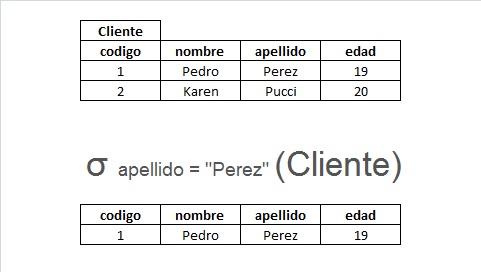MySQL: UNION ALL Operator - techonthenet. It returns all rows from the query and it does not remove duplicate rows between the various SELECT statements. The UNION ALL command combines the result set of two or more SELECT statements (allows duplicate values).
The UNION ALL operator returns all the rows from both the queries and no duplication elimination happens. MySQL UNION vs UNION ALL In MySQL the UNION operator returns the combined result from multiple SELECT statements into a single result set but exclude the duplicate rows where as the UNION ALL operator avoids the elimination of duplicate selected rows and returns all rows. MySQL uses the DISTINCT clause as the default when executing UNION queries if nothing is specified.
The ALL clause is used to return all even the duplicate rows in the UNION query. MySQL UNION operator MySQL UNION operator allows you to combine two or more result sets of queries into a single result set. You can mix UNION ALL and UNION DISTINCT in the same query. Mixed UNION types are treated such that a DISTINCT union overrides any ALL union to its left.
A DISTINCT union can be produced explicitly by using UNION DISTINCT or implicitly by using UNION with no following DISTINCT or ALL keyword. The SQL UNION Operator The UNION operator is used to combine the result-set of two or more SELECT statements. Using union and order by clause in mysql.
What is the difference between UNION and. UNION - this operation will allow you to join multiple datasets into one dataset and will remove any duplicates that exist. Basically it is performing a DISTINCT operation across all columns in the result set. UNION ALL - this operation again allows you to join multiple datasets into one dataset, but it does not remove any duplicate rows. It does not remove duplicate rows between the various SELECT statements ( all rows are returned).

Each SELECT statement within the UNION ALL must have the same number of fields in the result sets with similar data types. MySQL Union ALL operation is used to combine two or more result sets. Before you use UNION ALL operator in MySQL or MariaDB, you need to remember couple of things. UNION ALL will return Duplicate records if result sets have same records. What the Union and Union All Operators Do.
Both the UNION and UNION ALL operators achieve the common goal of combining the of two or more SELECT statements. As such, each query within the UNION must select the same number of fields with compatible data types - i. UNION vertically appends Table and Table but removes duplicate records where values in each corresponding column in the from the query are the same. In a UNION query, there are at least two SELECT statements.
Oracle Union All operator is used to combine the result sets of two or more SELECT statements. It combines the both SELECT statement result sets and return as it is. So with UNION ALL duplicate rows are not eliminate rather they are included. This operator just pulls all rows from all tables which satisfy the query and combines them into a table.
As you will see the final ets will differ, but there is some interesting info on how SQL Server actually completes the process. A UNION query, by definition, eliminates all duplicate rows (as opposed to UNION ALL ) and is slower. To do this in SQL Server, it must build a temporary index on all the columns returned by both queries. Discussed in detail the standard keywords that are used very commonly to write queries. These are basic examples that can be used for beginners.
The Union Clause is used to combine two separate select statements and produce the result set as a union of both the select statements. With union all, you smoosh two data sets together not caring if there are dups or not. MySQL Database Tutorial - - UNION thenewboston.
Unsubscribe from thenewboston? It is not possible to use separate Order By in Union. You can add an additional static column and order by that column.
You want to use the concept “SELECT with ORDER BY – with ORDER KEY” Select Student, TotalBook, ‘tb1’ OrderKey from school_one Union All Select Student, TotalBook, ‘tb2’ OrderKey from school_two order by. I try to select sample of where type=and all the data where type= I w.
No comments:
Post a Comment
Note: Only a member of this blog may post a comment.